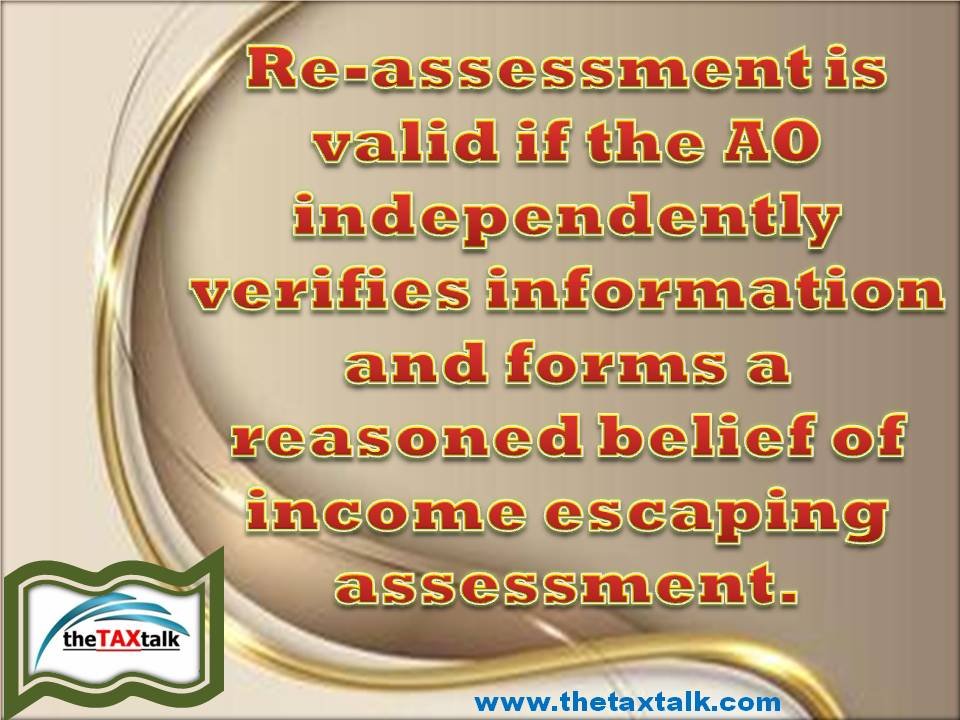![]()
Re-assessment is valid if the AO independently verifies information and forms a reasoned belief of income escaping assessment.
In a significant ruling, the Delhi High Court in the case of Ganesh Ganga Insvestments Pvt Ltd [TS-292-HC-2025(DEL)] upheld the validity of reassessment proceedings initiated by the Income Tax Department against the assessee, emphasizing that the Assessing Officer (AO) had independently applied his mind to the material provided by the Investigation Wing (“IW”) before forming a belief of income escaping assessment.
A search was conducted by the IW at the premises of an entry operator, revealed incriminating evidence of accommodation entries being provided to various entities, including the assessee. The IW’s report alleged that the assessee had received accommodation entries in the form of share capital from six entities controlled by the entry operator. Based on this report, the AO issued a reassessment notice u/s148, contending that income had escaped assessment.
The assessee challenged the reassessment, arguing that the AO had acted solely on “borrowed satisfaction” from the IW without independent verification. The CIT(A) dismissed the assessee’s appeal, but the ITAT later quashed the reassessment, holding it as invalid due to lack of independent application of mind by the AO.
Key Observations of the Delhi HC:
The HC reversed the ITAT’s decision, making the following critical observations:
1. Independent Application of Mind by AO: The Court noted that the AO had not merely relied on the Investigation Wing’s report but had independently scrutinized the assessee’s return, verified disclosures, and cross-referenced them with the seized material. The reasons recorded for reopening demonstrated a clear link between the information and the belief that income had escaped assessment.
2. No Borrowed Satisfaction: The Court distinguished this case from precedents where reassessment was quashed due to mechanical reliance on investigation reports. Here, the AO had analyzed the report, examined the return, and corroborated findings with the statement of the entry operator, establishing a tangible basis for reassessment.
3. Validity of PCIT’s Approval – The assessee contended that the Principal Commissioner of Income Tax (PCIT) had granted approval mechanically. However, the Court held that the approval, though succinct, was valid as it reflected due application of mind, unlike cases where approvals were granted as a mere formality.
The ruling underscores that reassessment is valid if the AO independently verifies information and forms a reasoned belief of income escaping assessment. It clarifies that mere reliance on third-party reports is insufficient, reinforcing the need for due diligence in tax investigations.
The copy of the order is as under:


